Learning & Development
The Reluctant HR Leader’s Guide to Lifelong Learning
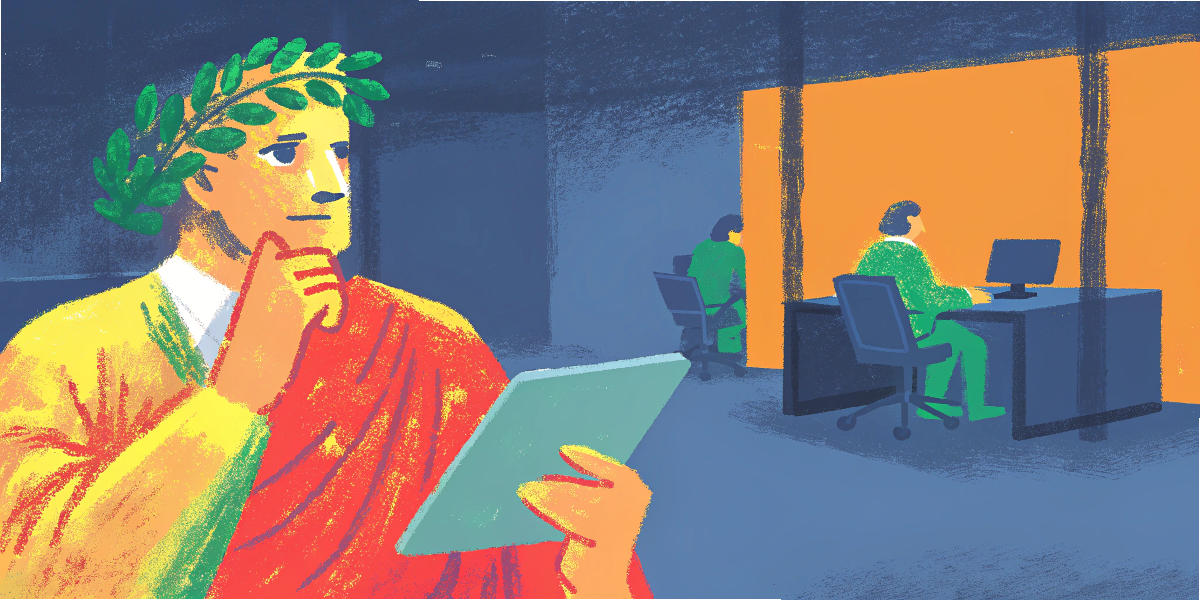
“I know that I know nothing“
Socrates probably wasn’t talking about HR strategy, but his words still ring true for anyone leading people today. Not in the self-defeating, imposter-syndrome sense, but in the healthy acknowledgment that there is always more to learn. In a world that evolves by the hour and in a field as human-centered and unpredictable as HR, that mindset is more than philosophical —it’s practical.
The truth is, even a lifetime isn’t enough to grasp more than a fraction of what’s out there. That’s especially true in HR, where every day brings interactions with people whose experiences, needs, and perspectives are vastly different from your own. You’re expected to resolve issues before they become problems, to design structures that keep the business running, and to negotiate in ways that protect both the company and its people.
And yet, you’re also expected to keep growing yourself. Even when you’ve reached a senior role, the “final destination” doesn’t exist. Taking on a new leadership position doesn’t come with a neatly packaged USB drive that uploads every skill you’ll ever need. Mastery takes time, curiosity, and the willingness to learn as you go.
That ability to keep learning is a quiet superpower. It’s what turns uncertainty into confidence, and good leaders into transformative ones. In this guide, we’ll explain why lifelong learning is essential for today’s HR leaders, highlight key skills and disciplines shaping HR in 2026, offer a practical framework to build your personal growth plan, and provide a curated list of valuable learning resources to support your ongoing development.
Why lifelong learning is the HR leader’s secret superpower
Lifelong learning isn’t just another line on your professional to-do list — it’s a long-term strategy for staying sharp, relevant, and ready for whatever comes next. It’s a quiet strength, a steady thread that keeps you adaptable, curious, and confident that you can handle whatever challenge appears around the corner.
This power is more vital than ever. We’re living in a state of suspension, bracing for the moment AI knocks on the door to take our jobs (which wouldn’t be the worst thing, if only we didn’t still have to pay the electric bill). Add to that new laws, emerging technologies, shifting employee expectations, and the workplace becomes a moving target.
But lifelong learning offers more than just mental agility. It gives you the courage to face tomorrow without fear and the perspective to guide others through uncertainty. For HR leaders, it’s nothing short of a superpower.
Here is why:
- Keeps you ahead of change – You spot shifts in the workplace early and move before the ground shifts under your feet.
- Boosts decision-making – Every new skill or perspective is another lens for solving complex challenges faster and with more confidence.
- Inspires innovation – Fresh knowledge helps you break free from the “this is how we’ve always done it” mindset.
- Builds credibility – Your team trusts advice that’s grounded in what’s relevant now, not in outdated playbooks.
- Strengthens resilience – Stretching your mind makes it easier to navigate the unexpected without losing balance.
- Helps you weather burnout – Curiosity keeps your work fresh, even in tough seasons.
- Protects long-term career value – In an AI-driven market, adaptability is your best safety net.
And here’s the trick: keep a small spark of childlike curiosity alive. That little bit of wonder will pull you through burnout and those moments when learning feels pointless, when nothing seems to stick. It’s the voice that says, “Let’s just explore this one thing…”, and suddenly, you’re moving forward again.
Breaking the myth: you don’t have to know it all already
The idea of lifelong learning can feel overwhelming, especially when self-doubt takes over. But here’s the truth: leadership is less about having all the answers and more about curiosity, resilience, and a willingness to grow.
Think of leadership like setting sail on an open sea. Before you leave the dock, you might know the general route from maps or stories. But as you journey, you adjust your sails with every shift in the wind, and learn from every wave you cross.
The idea that you must “know it all” before stepping into a leadership role is a myth. No one can physically absorb all the knowledge in the world — that’s why our lives are devoted to learning, in many forms. And learning isn’t limited by sitting with books or memorizing facts. It’s about gathering life experience — sometimes the hard way, by making mistakes and learning from them; other times by observing and reflecting on the experiences of others. Which form of learning is “better” is up to you only.
Of course each role comes with its own baseline of skills and knowledge, but those come with time and practice. When you step into a new position, you won’t have all the answers right away, but you will learn what you need — gradually and surely.
And here’s something just as important: it’s perfectly okay to say, “I don’t know this, but I’ll look it up.” Being honest about what you don’t know is far more effective than pretending to have all the answers. It’s not a weakness to admit uncertainty — it’s a strength. It shows you’re committed to finding the right solution, not just putting on a performance.
So don’t feed your inner imposter, that creaky, nervous voice that says you’re not enough or don’t deserve your seat at the table. Instead, treat the unknown as an open door, not a closed gap. Keep your mental radar switched on, explore new horizons, and don’t be afraid to act.
The reluctant HR leader’s practical guide to lifelong learning
Accepting that you don’t have all the answers leads to something even more powerful: continuous growth. But how do you fit learning into an already packed schedule? The key is making it practical and sustainable. To help you navigate this journey, here’s a practical guide to seamlessly blend ongoing education into your busy HR life.
- Set small, practical learning goals
Skip marathon study sessions. Start small: 15 minutes a day or every few days. It could be reading one useful article, listening to an episode of a podcast, or completing a mini-course. The idea is steady progress, not bursts. - Turn “dead time” into learning time
Those commuting minutes, waiting in a line, or walking the dog? Do something with them. Podcasts, audiobooks, or micro-modules of learning are ideal for these intervals and engage your brain without any extra effort. - Engage in peer learning communities
Learning alone is tough. Join HR communities, Slack groups, or local meetups where you can share issues, question, and learn new perspectives. Accountability and camaraderie are excellent motivational drivers. - Make your work your classroom
Don’t wait for formal training — use ongoing projects as real-world labs for trying out new ideas or skills. Hands-on experience accelerates learning and proves the value of what you’re exploring. - Build a weekly reflection ritual
Pause regularly to digest what you’ve learned. Journal insights, jot down challenges, or discuss takeaways with a colleague. Reflection transforms scattered knowledge into actionable wisdom. - Find a mentor or coach to guide you
Nobody grows alone. Find someone to mentor or coach you who can offer you frank criticism, destroy your hypotheses, and direct you to make difficult decisions. Their eyes can be a doorway to a new realm. - Celebrate every step forward
Growth is not necessarily about giant strides — it’s about small wins too. Rejoice in progress, no matter how minute. This positivity fuels your momentum and builds your confidence to keep going.
Key disciplines to master for 2026
With a practical roadmap in place to help you learn continuously, it’s time to focus your efforts on the disciplines that will truly shape the future of HR leadership. The landscape is evolving fast — technology advances, workplace cultures shift, and employee expectations keep rising. Here’s a tailored checklist of essential areas to master in 2026, complete with why they matter and how you can start exploring them today:
| Discipline | Why it matters | Where to start |
|---|---|---|
| Artificial Intelligence & Automation | AI is transforming HR — from recruitment and talent assessment to engagement analytics. Mastering these tools means boosting efficiency and making smarter decisions. | Coursera: AI For Everyone, Udemy: AI HR: Artificial Intelligence & ChatGPT in Human Resources |
| Data Analytics & Workforce Planning | Making decisions backed by solid data is no longer optional. Understanding analytics lets you forecast talent needs and develop effective strategies. | Coursera: People Analytics by Wharton, edX: Data science executive education programs |
| Soft Skills (Creativity, Adaptability, Communication) | Technology can’t replace emotional intelligence and adaptability — key ingredients to lead culture, navigate complexity, and inspire teams. | Coursera: Creative Problem Solving by UVA, Udemy: Emotional Intelligence Courses |
| Change Management & Organizational Transformation | Leading change smoothly is an HR leader’s superpower. Guiding employees through transitions with trust and clarity drives success. | Prosci Change Management Certification, Coursera: Leading Organizational Change |
| Employee Well-being & Mental Health Support | Burnout is a real challenge. Promoting mental health and well-being improves retention, engagement, and overall culture. | edX: Mental Health and Nutrition by U. of Canterbury, Udemy:Employee Wellness: Building Well-Being Programs That Work, Mental Health America Resources |
Transforming yourself to transform the organization
The growth journey you’re embarking on isn’t just personal development — it’s a catalyst for your entire organization’s success. When HR leaders commit to continuous learning and embrace change, they become role models who inspire their teams and ignite meaningful culture shifts.
Take the example of a senior HR leader who once doubted their readiness to lead a digital transformation. By embracing learning, seeking support, and taking small, iterative steps, they sparked a department-wide evolution — driving higher employee engagement and retention. Your transformation fuels theirs.
But change isn’t always easy. The pressures of leadership, imposter feelings, and the risk of burnout are very real. Lifelong learning doesn’t mean pushing harder or faster — it means pacing yourself with kindness and self-awareness. Balance your ambitions with self-care. Know when to pause, recharge, and ask for help. Leadership is a marathon, not a sprint.
Remember: every great leader started as a reluctant one. Lifelong learning is your compass, guiding you through shifting landscapes. The path forward isn’t about knowing everything, but about the courage to keep growing, questioning, and evolving.
People strategies shape business futures — and HR leaders are the ones writing that script.
Stay in discovery mode. Keep your learning habit the fuel for resilience. Keep leading.

-

 Collaboration8 months ago
Collaboration8 months ago18 Experts Share Tips for Businesses Switching to Remote Work
-
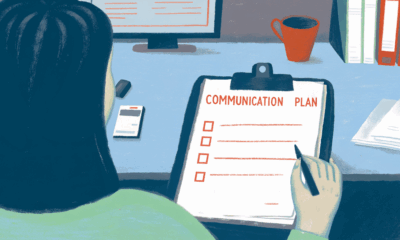
 Communication10 months ago
Communication10 months ago6 Communication Plan Templates With Examples
-
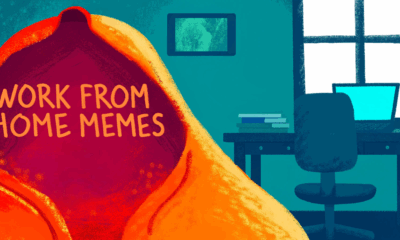
 Collaboration9 months ago
Collaboration9 months ago30 Work From Home Memes: Funny Work Memes to Make You Laugh
-
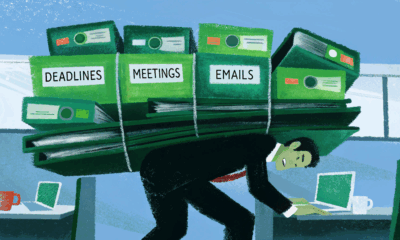
 Collaboration10 months ago
Collaboration10 months ago6 Tips for Lifting the Burden of Too Many Responsibilities
-

 Productivity9 months ago
Productivity9 months agoSuper True Mental Health Memes You’ll Probably Relate To
-
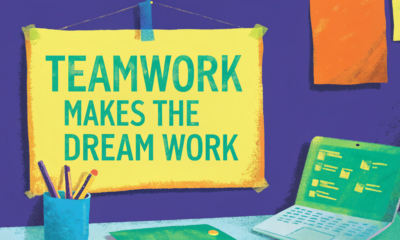
 Collaboration11 months ago
Collaboration11 months ago35+ Collaboration Quotes to Celebrate Teamwork
-
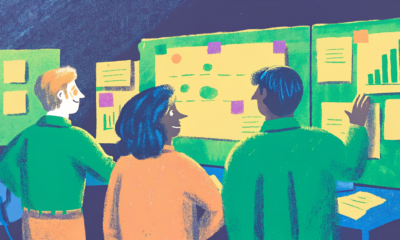
 Collaboration11 months ago
Collaboration11 months ago7 Easy Strategies for Effective Team Communication
-

 Collaboration9 months ago
Collaboration9 months agoTop 6 Financial Tips Every SaaS Founder Should Know




